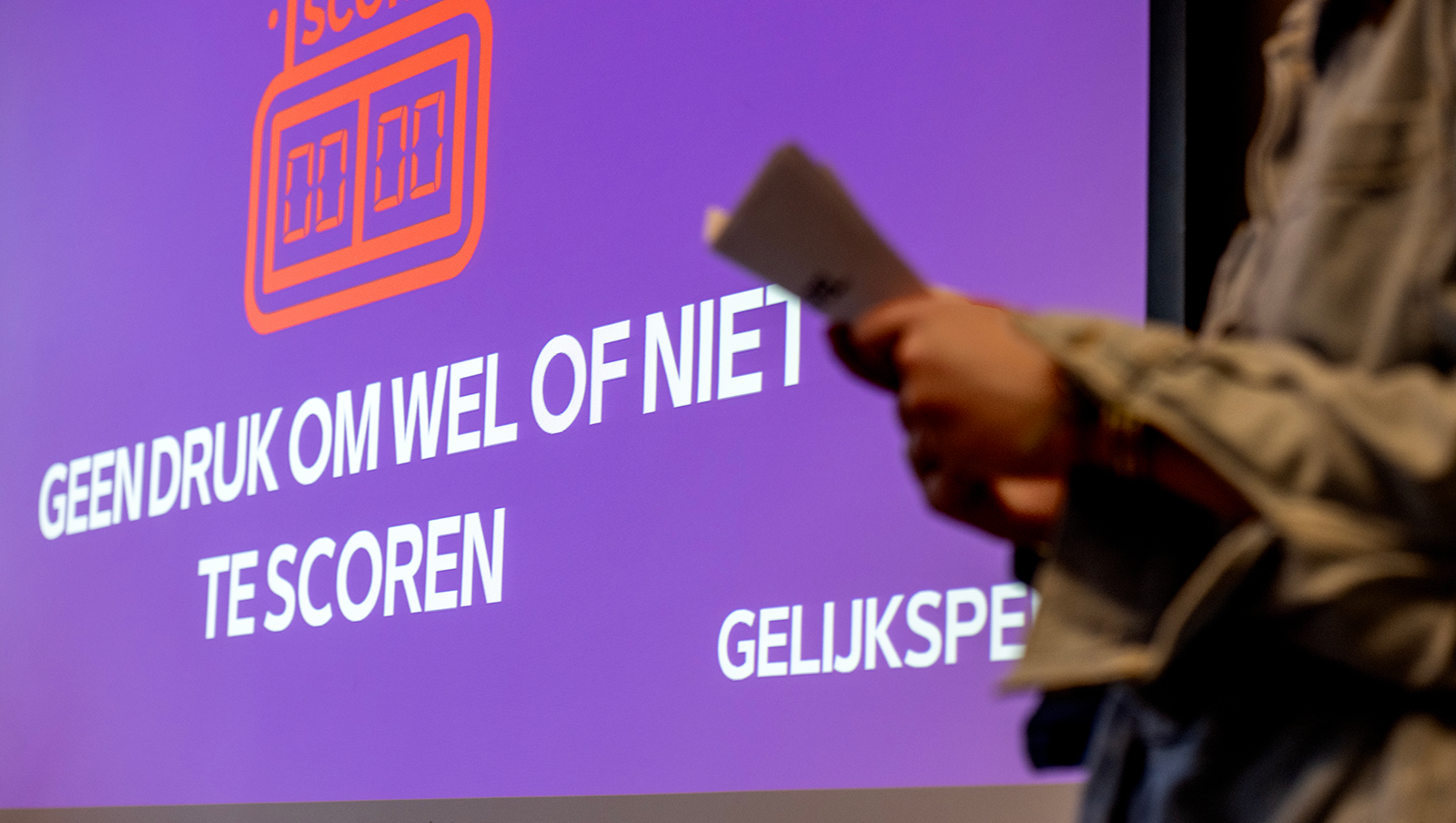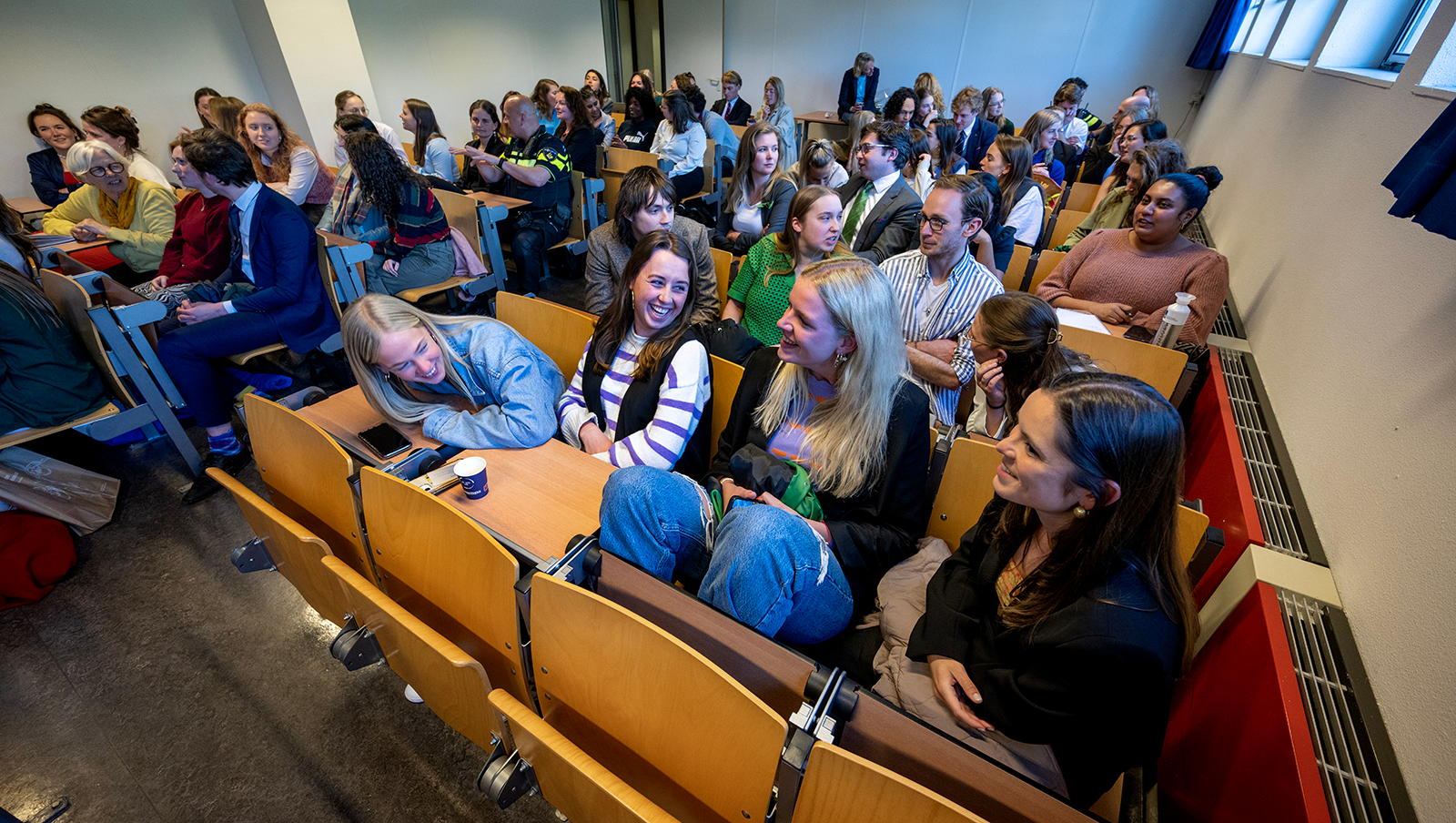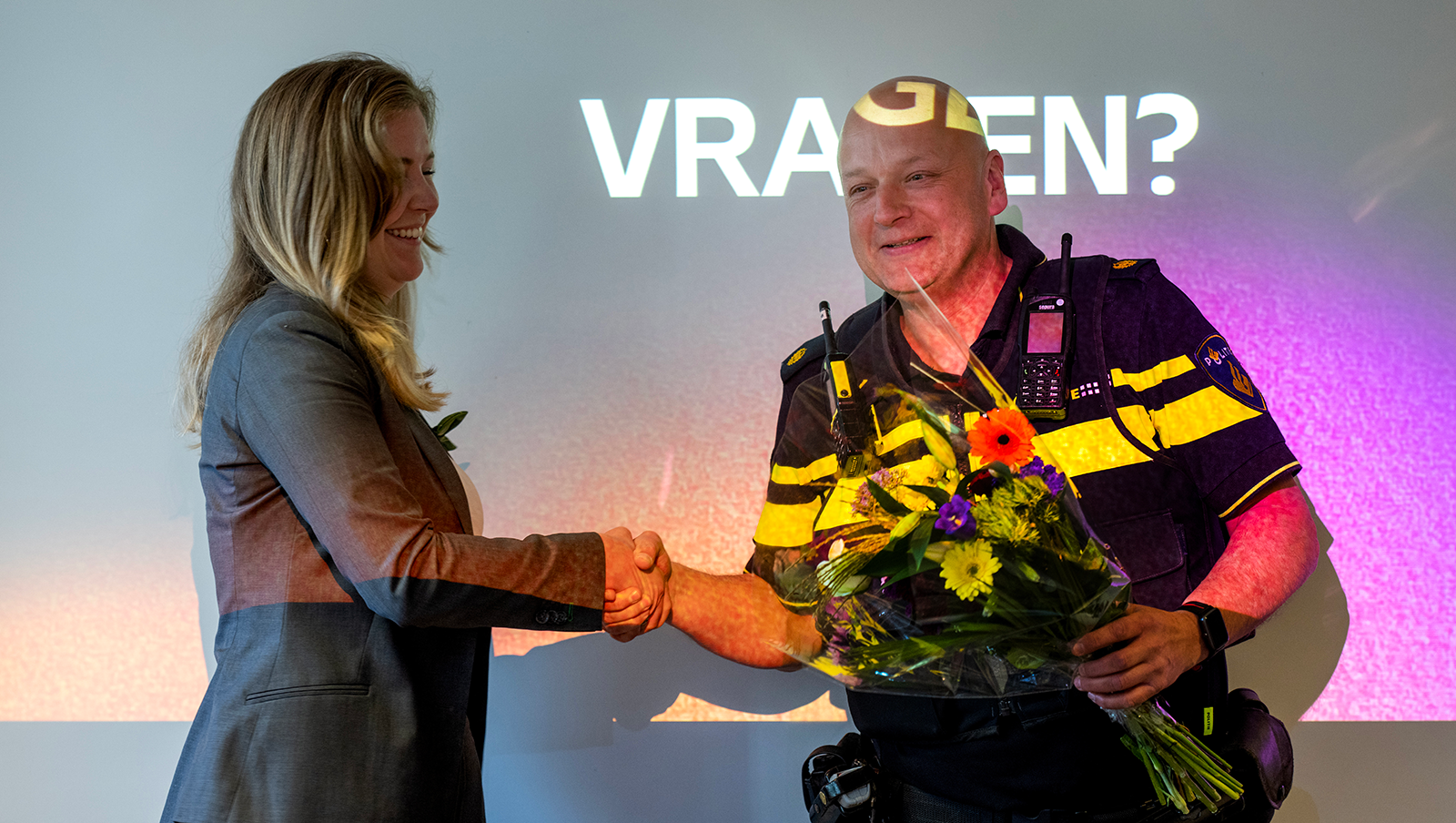
What do you do if your professor winks at you?
Sexual harassment was the theme of the recent annual symposium of student ambassadors to the Leiden-Bollenstreek police in collaboration with the police and the municipality. An extremely important issue to students − if the 100 places being claimed as soon as the symposium was announced was anything to go by.
The student ambassadors from Gelijkspel, a foundation that aims to create a positive sexual environment and experience for students, began by going through some scenarios with those present to get an idea of the rules of the game of sex. The first scenario was fairly easy for everyone. You’re in bed with someone and you want more. But you’re not sure if your bedmate does. The answer was unanimous: just ask. ‘Awkward maybe, but there’s no other option’, said one student.
Lie or reject?
The second scenario: you really like someone but don’t want to go out with them tonight. This can lead to slightly more tentative behaviour. There was a lot of support for lying and saying you’d like to but have to get up early the next morning. This means you’re not rejecting the other person, who you do like after all.

Professor who winks at you
The professor who winks at you at a drinks reception is more complicated. Winking isn’t illegal and is more difficult to interpret. Most of those present would only do something if the professor went further, but not before. A somewhat older woman took a firmer approach. A professor is in a position of power, she said, so should never behave like that. And a wink has sexual overtones. ‘So say something straight away.’
The students found scenarios difficult that involve group pressure in the form of questions like, ‘Isn’t it time you had sex?’ and crude comments about people sleeping around. Sometimes they think it’s just a joke and sometimes they ignore it for other reasons. ‘Before you know it you end up in one of those endless discussions where you’re the feminist bitch. I’m not always in the mood for that’, said one student.
‘If we do speak out, we’ll break down the culture it’ll no longer matter how much or little sex you have’
But the rules of play are clear: state your wishes and boundaries, be a good sport and have each other’s back. Because by saying nothing you keep the culture alive. ‘If we do speak out, we’ll break down the culture and it’ll no longer matter how much or little sex you have’, said the Gelijkspel student ambassadors.
Street harassment
There was also time to discuss street harassment. What should you do if you witness a pushy guy harassing a girl or sit next to a group that is bullying a bit of a nerd? This was the focus of the Stand UP workshop by Fairspace. Research has shown that intervention is important. Seventy-nine per cent of the victims of street harassment felt that having someone intervene helped. But people only did so in a quarter of the cases. All the more reason to take a critical look at what helps in such situations.
People are often unsure what to do if they see something happen that doesn’t look quite right. And if are more people around and nobody reacts, it takes more courage to be the first, the trainers noted.
The 5Ds
The trainers explained how the 5Ds can help. They stand for Distract, Delegate, Document, Delay and Direct and are five ways bystanders can intervene if they see someone being harassed. Distract is a subtle way to intervene. You can ask the person who is being harassed for directions, for instance.
-

Students are all ears -

One of the scenarios -

There was plenty of time for discussion
Delegate means reporting the incident to a security guard or shop or restaurant staff, or any passing police officers. Document means recording what is happening. ‘This doesn’t mean 20 of you surrounding them and making TikTok films’, the trainer warned, but by collecting evidence. Then the perpetrator will often stop. And victims are more likely to report the incident to the authorities if they have evidence.
Healing
Delay means offering help afterwards. ‘Ask the person if they’re okay and if you can accompany them somewhere.’ You can also offer help a week later the trainers said. ‘Don’t shy away from this because you’re worried the victim will think you’re a coward for only saying something now. Research has shown that support and recognition are often very healing’, said the trainer. ‘For the victim it confirms that it wasn’t their problem.’
The last D stands for Direct: confronting the person about their behaviour. But be aware of your own safety, said the trainers, adding that there is no such thing as the perfect reaction. How you respond as a bystander depends on many factors. What kind of person you are, whether you’re alone or in a group and whether it’s day or night. But doing something is generally better than doing nothing.

Community support officer
At the end of the afternoon, it was time to shift the focus to police officer Dennis Perdok. He helps the student ambassadors to the police organise the symposium each year. But this was his last time. Perdok, who has been the police community support officer for students for seven years, is stopping, much to the dismay of the students present. He’s a familiar face to many of them, in no small measure because of the legendary mugs he distributed throughout the student world, mugs with his face on them and the lines: Hé student, deze vent is je wijkagent. A temporary replacement will take Perdok’s place before a permanent one is found.
Text: Marijn Kramp
Photos: Marc de Haan
